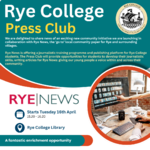Overview of Department
All children in Science have access to a rich, ambitious curriculum which fosters curiosity, creativity and a love of life-long learning.
Curriculum Statement: Values and Aims
This life transforming learning will prepare them well for the next stage of education, employment or training and enable them, as educated citizens, to contribute to creating a better world. We aim to develop scientific knowledge and conceptual understanding through the specific disciplines of biology, chemistry and physics, throughout which we aim to develop pupils` awareness of how science impacts on their everyday lives. Pupils are encouraged to adopt a critical approach which is based on scientific evidence and will strive to be able to work independently. We aim to cultivate an environment conducive to learning where we encourage and value pupil opinions, ideas and contributions, and expect pupils to value and respect the contributions of adults and peers. Learners will have a thirst for knowledge, so they can see how science shapes and underpins their understanding of the challenges they may face during their lives creating bright futures for all.
Key Stage 3 Science at Rye College
The Rye College Science ethos is that learning should be student-led, active and contextualised. We explore how Science fits into our everyday lives and how it challenges our understanding so that students appreciate key scientific concepts and its relevance.
At Key Stage Three, students study a combination of Biology, Chemistry and Physics. Units cover a variety of topics including cells, interdependence, particles, energy and forces. Practical work is an important part of science teaching and is included in as many lessons as possible. Students are assessed at the end of each topic and receive feedback twice before each topic assessment.
GCSE Combined Science
The combined sciences provide the foundation for understanding the material world. Scientific understanding is changing our lives and is vital to the world’s future prosperity. All students should learn essential aspects of the knowledge, methods, processes and uses of science. They should gain appreciation of how the complex and diverse phenomena of the natural world can be described in terms of a small number of key ideas that relate to the sciences and that are both inter-linked and of universal application.
GCSE Combined Science, a double award GCSE course, provides students the opportunity to investigate and understand these key ideas, incorporating learning from across each of the three sciences (Biology, Chemistry and Physics). Students will get hands-on with a range of practical investigations, which are integrated into the course content, to create an interactive learning experience.
GCSE Triple Science – GCSE Biology, GCSE Chemistry, and GCSE Physics
Students studying Triple Science will work towards three GCSE qualifications: one for each Science. This option is for students who are seriously considering the future study of science at A-level and university with a view to associated careers. Therefore, this course will only be offered to students who have consistently high level outcomes during their Year 9 studies, across the three sciences and have a proven track record.
Learning takes place in the laboratory with theoretical work being illustrated by practical activities. There are eight investigations for each subject area: students keep a practical log of their work and are assessed on their findings in the examinations. The three subjects are studied separately and assessed through examinations.
GCSE Biology
Students have the chance to gain a good understanding of human biology, organisms, evolution and the environment. The course will help put Biology in the context of students' everyday lives with topics ranging from ‘keeping healthy’ to ‘humans and their environment’. The course is designed to help them understand how science can be used to explain the world in which they live and the impact of humans. Teachers are encouraged to develop students’ practical skills with hands-on work which helps to engage and enthuse them. Students can see how science is used to solve problems ranging from cures for infectious diseases to creating bio fuels.
GCSE Chemistry
Chemistry gives students the opportunity to gain a good understanding of: the nature of substances and how they react together; how Chemistry is used in business and industry and how our use of raw materials in fuels and manufacturing can affect the global and local environment. The course is designed to help students understand how to formulate a scientific approach to understanding and explaining the world and solving problems. Many of the materials considered are substances that students will come across in their daily lives like drinking water, vegetable oils and metals. This helps engage students by putting their learning in context. Students are encouraged to develop practical skills with hands-on work which helps make the subject come alive in the classroom.
GCSE Physics
Physics offers students the chance to gain a good understanding of: the use and transfer of energy waves; radiation and space; the application of Physics. Physics is designed to give students the tools and concepts they need to be able to construct a scientific approach to solving problems. Students will learn to ask and answer questions about the fundamental laws that govern natural phenomena. Students are likely to be engaged by the aspects of the specification that they can relate to their everyday life, such as the efficiency of electrical appliances and braking distances, as well as larger concepts like nuclear fission and fusion and evidence of the Big Bang.
Our Biology Knowledge Journey
Our Chemistry Knowledge Journey
Our Physics Knowledge Journey
Knowledge Summaries - Science
Progression routes
GCSE Combined Science is designed to provide students with a strong grounding in scientific knowledge and methodology. This foundation forms the basis of modern understanding and will allow students to move onto more complex learning across the whole curriculum. In particular, science forms the foundations for a range of social and human sciences such as Sociology and Psychology at A-Level, and Sports Science and Management.
GCSE Physics can open doors to future careers in engineering and construction. GCSE Chemistry can open doors to future careers in medicine and chemical industries. GCSE Biology can open the doors to future careers in medicine and the life sciences.
.jpg)
_(1)_(1).jpg)




